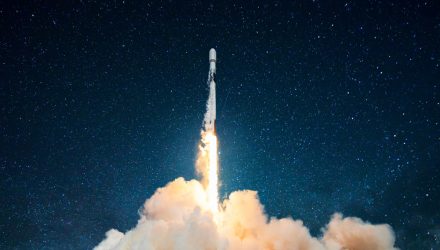Space companies kept the Federal Aviation Administration (FAA) busy the past year. A record number of rockets were launched, paving the way for investors to consider adding space exploration as part of their growth portfolios.
The FAA managed U.S. airspace for 92 space missions in 2022, which represented a 33% jump from the previous year, and 2023 is expected to be another record year. It’s a refreshing sign for the U.S. space exploration sector as the federal government seems to have less budgetary allocations going into space exploration and private companies are ready to fill the monetary gaps.
“Space is cheap now. Operators can get to space and it’s not just nation states, it’s now private companies — that’s a huge change in the paradigm,” said Duane Freer, manager of the FAA’s Air Traffic Organization Space Operations office, in a CNBC report.
“We’ve made significant strides in lessening the impact and managing the airspace much more efficiently for launch and reentry missions,” Freer added. “It wasn’t that long ago that SpaceX was a new company and these were all notional ideas.”
Capture Growth in Space Exploration
More and more, space exploration is looking to the private sector in order to fund innovations. Given this opportunity, one exchange-traded fund (ETF) worth considering is the ARK Space Exploration & Innovation ETF (ARKX).
With its active management style, the fund seeks long-term growth of capital by investing in domestic and foreign equity securities of companies that are engaged in the Fund’s investment theme of Space Exploration and innovation. With 80% of the fund’s holdings in North America, it’s focus is on companies that could help keep the U.S. a world power in space exploration.
“The 1957 launch of Sputnik and subsequent Russian firsts in space convinced many U.S. policymakers that the country had fallen dangerously behind its Cold War rival,” a Council on Foreign Relations article noted. “Consecutive U.S. administrations invested in education and scientific research to meet the Soviet challenge. These investments propelled the United States to victory in the so-called space race and planted the seeds for future innovation and economic competitiveness, experts say.”
“Yet, since the 1990s, NASA’s share of federal spending has waned,” the article added. “The U.S. private sector has ramped up investment in space, and in May 2020, astronauts launched from U.S. soil for the first time in nearly a decade on a rocket built by the company SpaceX.”
For more news, information, and analysis, visit the Disruptive Technology Channel.

